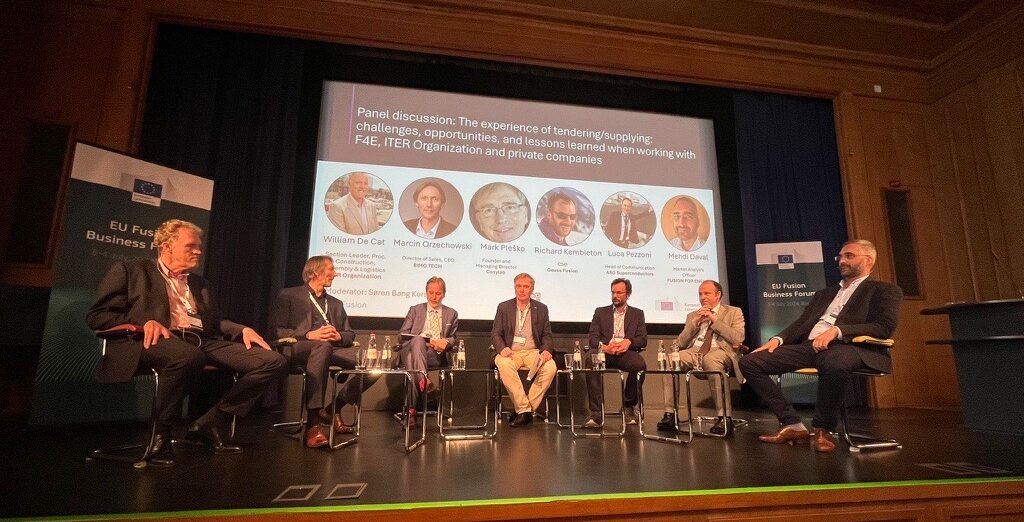Cosylab’s CEO Speaks at the European Fusion Industry Forum

We are proud our CEO, Dr Mark Pleško, took part in the prestigious European Fusion Industry Forum in Berlin from July 3rd to 4th, 2024, organised by the European Commission!
The event gathered private fusion promoters, representatives from Fusion for Energy, the ITER Organization, and commercial fusion pioneers. Mark participated in the panel that examined the experience of supplying services and components to public agencies and commercial fusion programs.
Namely, recent technological advancements and a surge in private investments have propelled the fusion industry to new heights. To capitalise on this momentum, the EU must foster an ecosystem that seamlessly transitions from research initiatives to the industrial implementation and construction of future fusion power plants.
Cosylab developed the first version of CODAC (Control, Data Access and Communication), ITER’s basic control system and is now working on controls and diagnostics for several domestic agencies worldwide and commercial fusion startups. In light of this, Mark pointed out in the discussion that the control system for a fusion plant is not a box you just buy off the shelf. He added, however, that fusion software is undoubtedly a supply chain issue but is different from other issues in two elements.
Firstly, software can still be changed and replaced, unlike, for example, a rod that you can’t fix if it’s too short. On the other hand, project managers think that they can decide on the SW and integrate it at the end of the device’s development cycle, and therefore wholly underestimate the effort to implement software.
It is true that today, software is not a technology challenge, so people focus on fusion physics (a science challenge) and mechanics (a technology challenge). Mark emphasised that software is not a critical technology but is on the critical path because it connects all parts of the fusion device. Therefore, system and control software suppliers must partner with all the development participants and not just function as subcontractors.
